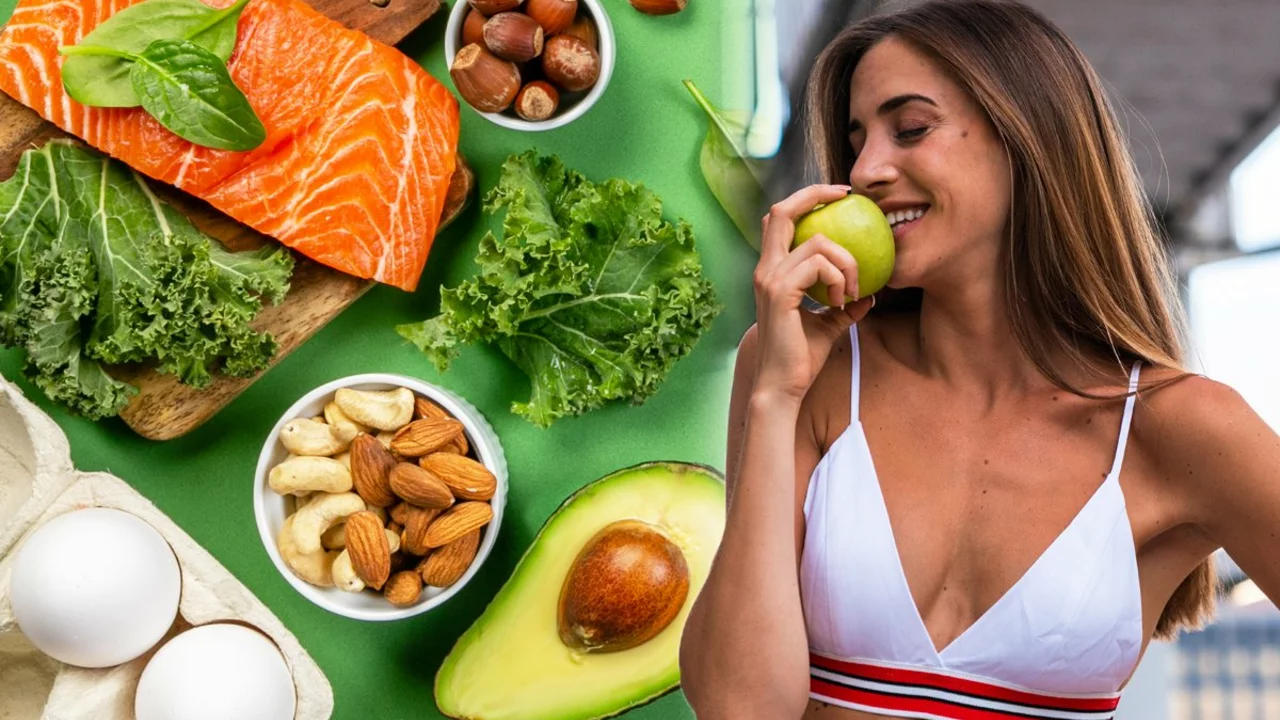Just finished researching and jotting down the top 5 foods that can help in preventing age spots. You're going to be surprised but it's actually pretty simple: citrus fruits, green leafy vegetables, sweet potatoes, green tea, and fatty fish. These foods are packed with antioxidants, vitamins, and omega-3 fatty acids which can help to keep your skin healthy and glowing. Also, they can aid in preventing age spots by combating free radical damage. So, incorporating these foods into your diet won't just be a treat for your taste buds, but also a boon for your skin.
Top Foods: What to Eat to Feel Better Every Day
Want simple food choices that actually change how you feel? Start with a few reliable items: fatty fish, leafy greens, berries, yogurt, nuts, and cruciferous vegetables. These are easy to find, taste great, and show up again and again in studies and clinical advice for lowering inflammation, supporting digestion, and helping hormone balance.
Fatty fish like salmon or mackerel give you omega-3s that calm inflammation and support brain health. Aim for two servings a week or use a high-quality omega-3 supplement if you don’t eat fish. Berries—blueberries, strawberries—are small but powerful: they pack antioxidants that protect cells and help recovery after workouts or illness.
Everyday foods that do more than fill you up
Leafy greens (spinach, kale) deliver vitamins, magnesium, and fiber. Fiber helps blood sugar and supports a healthy gut, which changes how your body handles medications and supplements. Yogurt and other fermented foods bring beneficial bacteria—useful if you’re on antibiotics or want better digestion. Nuts and seeds add protein, healthy fats, and minerals without fuss. Cruciferous vegetables (broccoli, Brussels sprouts) contain compounds linked to liver detox pathways—this pairs well with supplements like Calcium D-Glucarate discussed on our site.
Spices matter. Turmeric and ginger reduce soreness and improve digestion for many people. Garlic and onion add flavor and have modest antimicrobial and heart-health benefits. Swap one processed snack each day for a handful of nuts, a piece of fruit, or a cup of yogurt and you’ll notice steady gains in energy and cravings.
Food, supplements and meds: easy rules to follow
Food can change how drugs work. Grapefruit is famous for affecting many meds—avoid it if your prescription warns against it. Alcohol can blunt antibiotics and other treatments; our article “Why You Should Avoid Alcohol When Taking Antibiotics” covers specifics. If you take thyroid meds, certain foods and supplements (iron, calcium) can reduce absorption—separate them by a couple of hours. If you’re using supplements like chitosan, Calcium D-Glucarate, or herbal bronchodilators, read the product notes and ask your provider about timing and interactions.
Shopping tips: choose whole foods over packages, pick seasonal produce, and freeze berries and greens when they’re cheap. Prep one simple meal plan: grilled salmon, a big salad with nuts and citrus, yogurt and berries for breakfast, steamed broccoli with a turmeric dressing. Small, consistent swaps beat dramatic diets.
Want deeper reading? Check our posts on chitosan for weight support, Calcium D-Glucarate for detox, herbal bronchodilators vs. Ventolin, and food–drug safety tips. Use food to support your meds and supplements, but always check with a clinician when mixing treatments—small changes can make a big difference.

